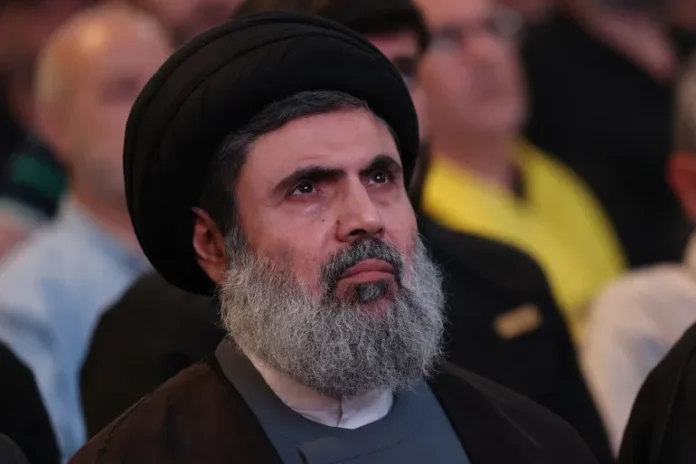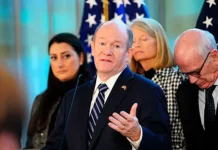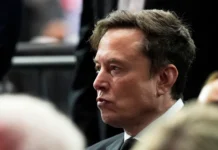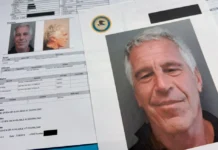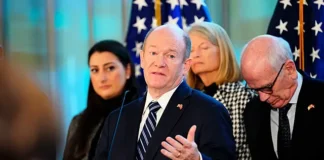Israel’s Defense Minister Yoav Gallant declared that Hashem Safieddine, the presumed successor to slain Hezbollah leader Sayyed Hassan Nasrallah, has likely been “eliminated” in an Israeli airstrike.
This development comes as Israel intensifies its ground operations in southwest Lebanon, expanding its military incursions amidst persistent tensions in the region.
Gallant’s statement marks a significant moment for the Iran-backed Hezbollah, which has effectively been left without a clear leadership. “Hezbollah is an organization without a head. Nasrallah was eliminated, his replacement was probably also eliminated,” said Gallant, speaking to officers at the Israeli military’s northern command center. He added that the group now faces a critical gap in decision-making and operational capability.
Hashem Safieddine, a key figure within Hezbollah and head of its executive council, had long been seen as the likely heir to Nasrallah’s leadership.
Like his predecessor, Safieddine carries the black turban signifying his lineage from Islam’s Prophet Mohammed. However, he has not made any public appearances since the latest airstrike that targeted Hezbollah leadership on September 27, raising concerns about his fate and the future direction of the group.
While Israel maintains its offensive against Hezbollah, the Lebanese militia has indicated a willingness to explore options for a negotiated ceasefire, hinting at possible diplomatic channels amidst the turmoil. This could signal a complex interplay of military action and political maneuvering as the situation develops.
Israel’s airstrikes and ongoing military operations have intensified fears of broader conflict in the region, with both local and international commentators closely monitoring the situation. As the dust settles, the absence of clear leadership in Hezbollah presents an opportunity for Israel, but it could also lead to unpredictability in the group’s next moves.









